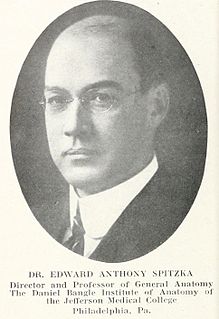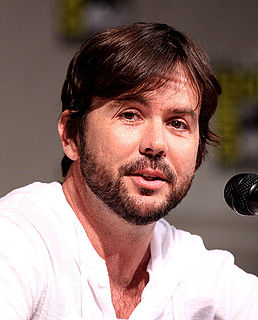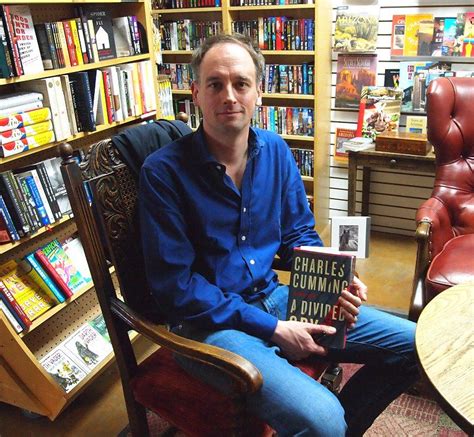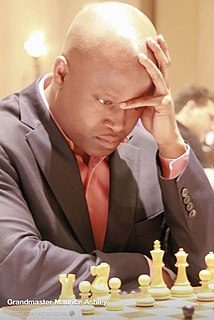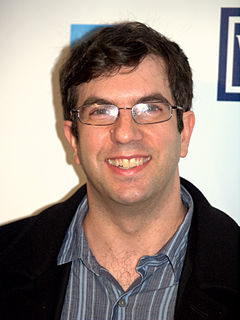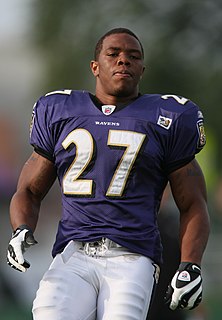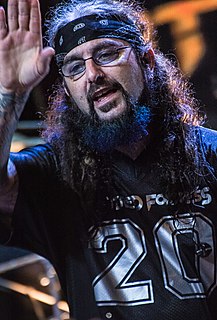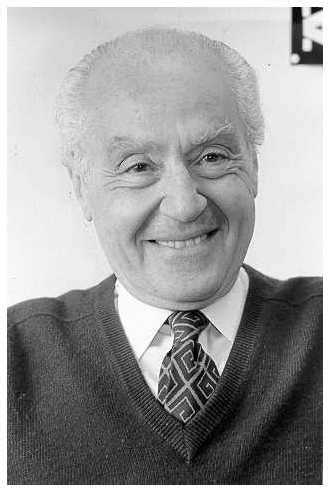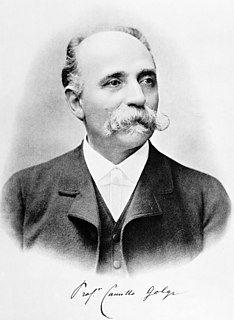Top 238 Cerebral Palsy Quotes & Sayings - Page 4
Explore popular Cerebral Palsy quotes.
Last updated on April 15, 2025.
The idea that the bumps or depressions on a man's head indicate the presence or absence of certain moral characteristics in his mental equipment is one of the absurdities developed from studies in this field that has long since been discarded by science. The ideas of the phrenologist Gall, however ridiculous they may now seem in the light of a century's progress, were nevertheless destined to become metamorphosed into the modern principles of cerebral localization.
The future of human relationships will be directly related to the cerebral functions. For this reason it is already a fundamental thing. In the past, and well until today, some South American countries have had a great neuropharmacological history, since the natives' times. It is necessary that we remind ourselves of the many licit and illicit drugs that were generated in our continent and that act on the brain.
It's far easier to write why something is terrible than why it's good. If you're reviewing a film and you decide "This is a movie I don't like," basically you can take every element of the film and find the obvious flaw, or argue that it seems ridiculous, or like a parody of itself, or that it's not as good as something similar that was done in a previous film. What's hard to do is describe why you like something. Because ultimately, the reason things move people is very amorphous. You can be cerebral about things you hate, but most of the things you like tend to be very emotive.
How I like claret!...It fills one's mouth with a gushing freshness, then goes down to cool and feverless; then, you do not feel it quarrelling with one's liver. No; 'tis rather a peace-maker, and lies as quiet as it did in the grape. Then it is as fragrant as the Queen Bee, and the more ethereal part mounts into the brain, not assaulting the cerebral apartments, like a bully looking for his trull, and hurrying from door to door, bouncing against the wainscott, but rather walks like Aladdin about his enchanted palace, so gently that you do not feel his step.
I wanted to make an artwork that really underlined the contradiction between how machines see and how humans see. Because music is so affective and is just as corporeal as it is cerebral, I thought coupling a music performance with machine vision adds up to something that work on an emotional, aesthetic, and intellectual level.
One of the biggest breaks we had actually, one of the biggest, the hardest I laughed on the movie [The Hangover] was the baby was just doing ridiculous things and making hilarious faces. But I'm sitting there and I'm supposed to be having this exchange with Zach [ Galifianakis] and the baby is like staring at me with these huge eyes and acting, and just making the most cerebral faces, and I could not keep it together.
Each genre has its own process. I'm very intuitive about poetry. I usually write first and second drafts out by hand. The other end of the spectrum is journalism, which is much more cerebral, more thought-out and planned. Fiction lies somewhere in between. I usually start intuitively but eventually I need to stop and consider structure, or research, or both.
In 1915 Sophie Tauber and I carried out our first works in the simplest forms, using painting, embroidery and pasted paper (without using oil colors to avoid any reference with usual painting). These were probably the first manifestations of their kind, pictures that were their own reality, without meaning or cerebral intention. We rejected everything in the nature of a copy or a description, in order to give free flow to what was elemental and spontaneous.
As far as vocal preparation goes, it's really an interesting thing for such a fragile instrument and using it properly is like walking a tightrope. I have learned not to do extensive warm-ups. It's really more of a cerebral mind-body connection Zen hippy thing, just knowing your body and figuring out if I do that then I will be able to speak tomorrow.
What's hard to do is describe why you like something. Because ultimately, the reason things move people is very amorphous. You can be cerebral about things you hate, but most of the things you like tend to be very emotive. It's really hard to do a literary reproduction of what makes you happy. That's what I try to do. If nothing else, it seems like there's enough people out there telling the world what isn't cool, or what's terrible, or what's depressing. I think there's an element of cynicism in my writing, but I'm an optimistic cynic.
But if I were asked to pick one constant, one quality that seems dependable, immutable, endlessly available, I'd say that it was intensity. For nothing in Sicily seems withheld, done half way, restrained or suppressed. There's nothing to correspond to say, the ironic, the cerebral remove at which a Frenchman might consider an idea or a question, or the Scandinavian distrust of the sloppy, emotive response.
There's a lot of pressure to look good, have the gun, know what you're doing and be one of the boys. I was like, "I don't want to be one of the boys. I want to be a doctor. I want to be cerebral. I want to sit back and just use something else. I don't want to do the stunts. Let the boys do that. I'm just going to be the doctor who's about taking care of other people."
I find a difference in British spy fiction and American spy fiction. In the American version, it's more militaristic, partly because the CIA has more of the military makeup. Whereas MI6 is more of a cerebral, intelligence-based, relationship-based service, i.e., all they do is recruit people to get information out of them.
There is one brain organ that is optimised for understanding and articulating logical processes and that is the outer layer of the brain, called the cerebral cortex. Unlike the rest of the brain, this relatively recent evolutionary development is rather flat, only about 0.32 cm (0.12 in) thick and includes a mere 6 million neurons. This elaborately folded organ provides us with what little competence we do possess for understanding what we do and who we do it.
If we could look through the skull into the brain of a consciously thinking person, and if the place of optimal excitability were luminous, then we should see playing over the cerebral surface, a bright spot with fantastic, waving borders constantly fluctuating in size and form, surrounded by a darkness more or less deep, covering the rest of the hemisphere.
Capitalism, Socialism, Fascism, Communism, the Free-Market .... What good are these approaches for? These attempts are made by men who are cerebral insufficient. I'm trying to give you back your brain, which they took away from you in schools and in your upbringing. I'm trying to show you how the world works. So if you want a better world, you have to get up off your ass and make it better
The secret to freestyling is working on the creation of thought and it being expressed from your cerebral cortex, to the air in your lungs, to your larynx, pharynx, to your tongue to form a word via whatever consonants and vowels you're working with as well as having a sense of style, cadence, and rhythm.
All nations are imagined communities, and our imagined community is based on a uniquely inspiring set of principles. Americans have proved that they can be loyal to, and will fight on behalf of, a more complex, more cerebral national ideal, one derived from ideas of democracy and justice as opposed to blood and soil.
No physiologist who calmly considers the question in connection with the general truths of his science, can long resist the conviction that different parts of the cerebrum subserve different kinds of mental action. Localization of function is the law of all organization whatever: separateness of duty is universally accompanied with separateness of structure: and it would be marvellous were an exception to exist in the cerebral hemispheres.
I wonder, whether, if I had had any education I should have been more, or less, of a fool than I am. It would have deprived me surely of those exquisite moments of mental flatulence which every now and then inflate the cerebral vacuum with a delicious sense of latent possibilities-of stretching oneself to cosmic limits, and who would ever give up the reality of dreams for relative knowledge?
I don't like getting hit for one, although you know I did take Aikido for many years, but Aikido is a different kind of martial art, maybe even a more cerebral art because it's all about redirecting the energies of your opponent instead of trying to bash your opponent's head in effectively, so it's a much more loving art, so I guess I tend that way normally anyway.
Let me tell you, though: being the smartest boy in the world wasn’t easy. I didn’t ask for this. I didn’t want this. On the contrary, it was a huge burden. First, there was the task of keeping my brain perfectly protected. My cerebral cortex was a national treasure, a masterpiece of the Sistine Chapel of brains. This was not something that could be treated frivolously. If I could have locked it in a safe, I would have. Instead, I became obsessed with brain damage.
We live in the Age of the Higher Brain, the cerebral cortex that has grown enormously over the last few millennia, overshadowing the ancient, instinctive lower brain. The cortex is often called the new brain, yet the old brain held sway in humans for millions of years, as it does today in most living things. The old brain can't conjure up ideas or read. But it does possess the power to feel and, above all, to be. It was the old brain that caused our forebears to sense the closeness of a mysterious presence everywhere in Nature.
I consider the differences between man and animals in propensities, feelings, and intellectual faculties, to be the result of the same cause as that which we assign for the variations in other functions, viz. difference of organization; and that the superiority of man in rational endowments is not greater than the more exquisite, complicated, and perfectly developed structure of his brain, and particularly of his ample cerebral hemispheres, to which the rest of the animal kingdom offers no parallel, nor even any near approximation, is sufficient to account for.
As if to demonstrate, by a striking example, the impossibility of erecting any cerebral barrier between man and the apes, Nature has provided us, in the latter animals, with an almost complete series of gradations from brains little higher than that of a Rodent, to brains little lower than that of Man.
Some say that everything that is called a psychical law is nothing but the psychological reflex of physical combinations, which is made up of sensations joined to certain central cerebral processes... It is contradicted by the fact of consciousness itself, which cannot possibly be derived from any physical qualities of material molecules or atoms.
A fixed habit is supported by old, well-worn pathways in the brain. When you make conscious choices to change a habit, you create new pathways. At the same time, you strengthen the decision-making function of the cerebral cortex while diminishing the grip of the lower, instinctual brain. So without judging your habit, whether it feels like a good one or a bad one, take time to break the routine, automatic response that habit imposes.
So, you can define emotions very simply as the process of perceiving what is going on in the organs when you are in the throws of an emotion, and that is achieved by a collection of structures, some of which are in the brain stem, and some of which are in the cerebral cortex, namely the insular cortex, which I like to mention not because I think it's the most important, it's not.
Too many scholars think of research as purely a cerebral pursuit. If we do nothing with the knowledge we gain, then we have wasted our study. Books can store information better than we can--what we we do that books cannot is interpret. So if one is not going to draw conclusions, then one might as well just leave the information in the texts.
The essence of songs is neither vocal nor cerebral but organic. We follow songs in order to be enclosed. We find ourselves inside a message. The unsung, impersonal world remains outside, on the other surface of a placenta. All songs, even when their content or rendering is strongly masculine, operate maternally.
What distinguishes our species is thought. The cerebral cortex is in a way a liberation. We need no longer be trapped in the genetically inherited behavior patterns of lizards and baboons: territoriality and aggression and dominance hierarchies. We are each of us largely responsible for what gets put in to our brains. For what as adults we wind up caring for and knowing about. No longer at the mercy of the reptile brain we can change ourselves. Think of the possibilities.
Our only president who has died as U.S. commander in chief in war is Franklin Delano Roosevelt - who died of a cerebral hemorrhage or massive stroke on April 12, 1945, only three weeks before the unconditional surrender of the German armed forces he had laid down as implacable Allied policy two years before.
It is certain that there may be extraordinary mental activity with an extremely small absolute mass of nervous matter: thus the wonderfully diversified instincts, mental powers, and affections of ants are notorious, yet their cerebral ganglia are not so large as the quarter of a small pin's head. Under this point of view, the brain of an ant is one of the most marvelous atoms of matter in the world, perhaps more so than the brain of a man.
Now that you're an adult, you might still feel a pang of guilt when you decline a dinner invitation in favor of a good book. Or maybe you like to eat alone in restaurants and could do without the pitying looks from fellow diners. Or you're told that you're "in your head too much", a phrase that's often deployed against the quiet and cerebral. Or maybe there's another word for such people: thinkers.
To me, the most important tool is not a physical or a technical one. It's more of a cerebral one. It's your brain. It's about having an interest in experimenting musically, perhaps touching on several different genres of music. No doubt, the most important tool is the mind. It's the willingness to experiment freely.
If you like your soccer cerebral, and the triumph ultimately to be wrung out of staying power, Milan was the place to be. If you love the uncertainty of teams that cannot defend yet have the courage to attack, attack, attack, then Seville was heaven... The common denominator between the victories of Arsenal and Fenerbache? The strength of mind, the courage to dare in another team's domain, the inner belief that is as much a part of sporting success as the skill a fellow may be born with.
We are part of nature, a product of a long evolutionary journey. To some degree, we carry the ancient oceans in our blood. … Our brains and nervous systems did not suddenly spring into existence without long antecedents in natural history. That which we most prize as integral to our humanity - our extraordinary capacity to think on complex conceptual levels - can be traced back to the nerve network of primitive invertebrates, the ganglia of a mollusk, the spinal cord of a fish, the brain of an amphibian, and the cerebral cortex of a primate.
For the first time in longer than I can remember, I feel peaceful. Not happy. Not sad. Not anxious. Not horny. Just all the higher parts of my brain closing up shop. The cerebral cortex. The cerebellum. That's where my problem is. I'm now simplifying myself. Somewhere balanced in the perfect middle between happiness and sadness. Because sponges never have a bad day.
I think not in two or three dimensional terms but in five dimensional terms when I consider a novel. There's height, width, and depth, there's the time factor, and then there's the factor which I call the cerebral factor of the reader, the way the reader adjusts to all the other dimensions, which is the fifth dimension.
The acting I got into by doing what we call pantomime, when I was sixteen. And, there were loads of very pretty girls in the show. I realized; I found out very early on, that the lead comic gets the girl. So, that was cool. When I went to university, I studied Economic Social History. And drama. That kind of got me into it. My main passion was to make films. It was never to be an actor. At that time, there weren't many opportunities for a working class Scottish actor. It was kind of an English thing. And it required a certain mannered cerebral acting style that I couldn't relate to.
We rarely quote nowadays to appeal to authority... though we quote sometimes to display our sapience and erudition. Some authors we quote against. Some we quote not at all, offering them our scrupulous avoidance, and so make them part of our "white mythology." Other authors we constantly invoke, chanting their names in cerebral rituals of propitiation or ancestor worship.
Barack Obama, who might be mercifully closing the Clinton parenthesis in presidential history, is refreshingly cerebral amid this recrudescence of the paranoid style in American politics. He is the un-Edwards and un-Huckabee - an adult aiming to reform the real world rather than an adolescent fantasizing mock-heroic 'fights' against fictitious villains in a left-wing cartoon version of this country.
The funny thing about The West Wing is - and I don't know what Aaron Sorkin says about it - but I'm convinced it was a comedy. It's a very intellectual and cerebral comedy, but it was SportsNight in the White House. It had an energy and a vitality and an intelligence and a passion that's rare. And it was extremely difficult to do, because they were so demanding about the dialogue.
I would be ok if I found out for sure that if I am in any way superior to a wolf it is simply in virtue of my brain's higher capacity and complexity. A large difference - my cerebral equipment allows me to have such diverse concepts as "hope", "funky", "England", "multiplication", "three strikes" and "the categorical imperative" - but a difference in degree. Wolves, of course, are superior to me with regards to smelling, hearing, and running, and are generally superior to humans in that they don't kill each other.
Taking advantage of the method, found by me, of the black staining of the elements of the brain, staining obtained by the prolonged immersion of the pieces, previously hardened with potassium or ammonium bichromate, in a 0.50 or 1.0% solution of silver nitrate, I happened to discover some facts concerning the structure of the cerebral gray matter that I believe merit immediate communication.
When I was three, I fell and I got Bell's palsy in my face. My mom said the first day she called the rabbi, and he said a prayer for me but nothing happened. The second day she called the Mormons, and they said a prayer for me and my face was healed, so my whole life was going around as a Jew who was giving talks in Mormon churches about being healed by the Mormons.
My space chums think my unique hookup with humanity could be evolution's awkward attempt to jump-start itself up again. They're thinking just maybe, going crazy could be the evolutionary process trying to hurry up mind expansion. Maybe my mind didn't snap. Maybe it was just trying to stretch itself into a new shape. The cerebral cortex trying to grow a thumb of sorts.
